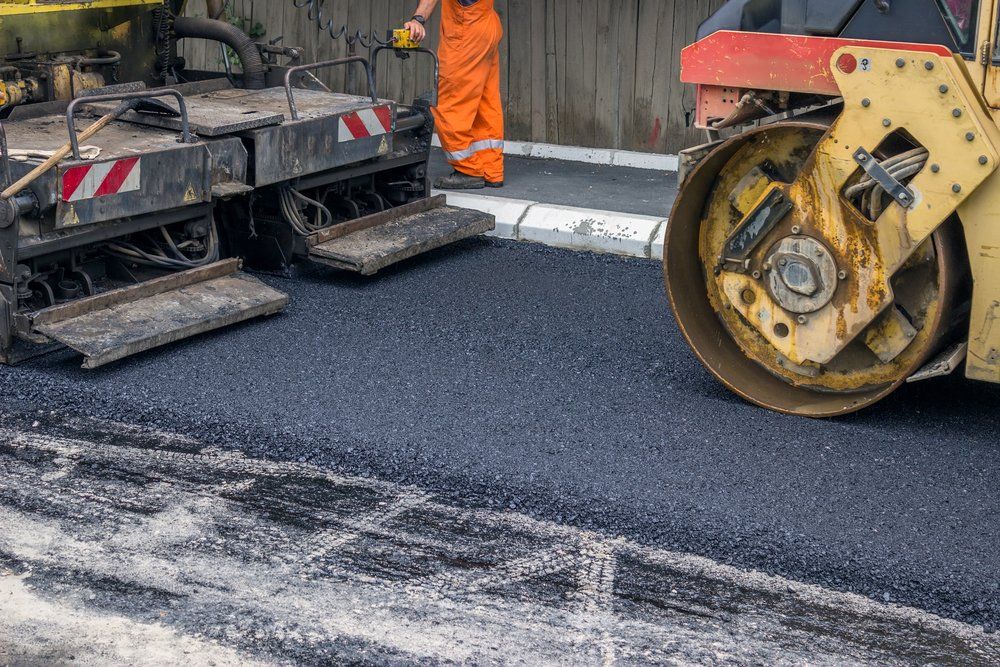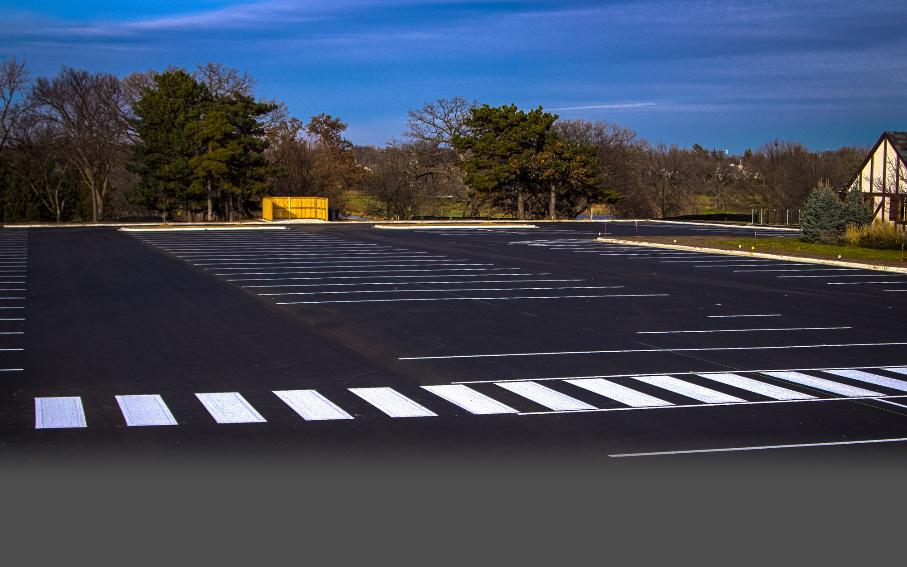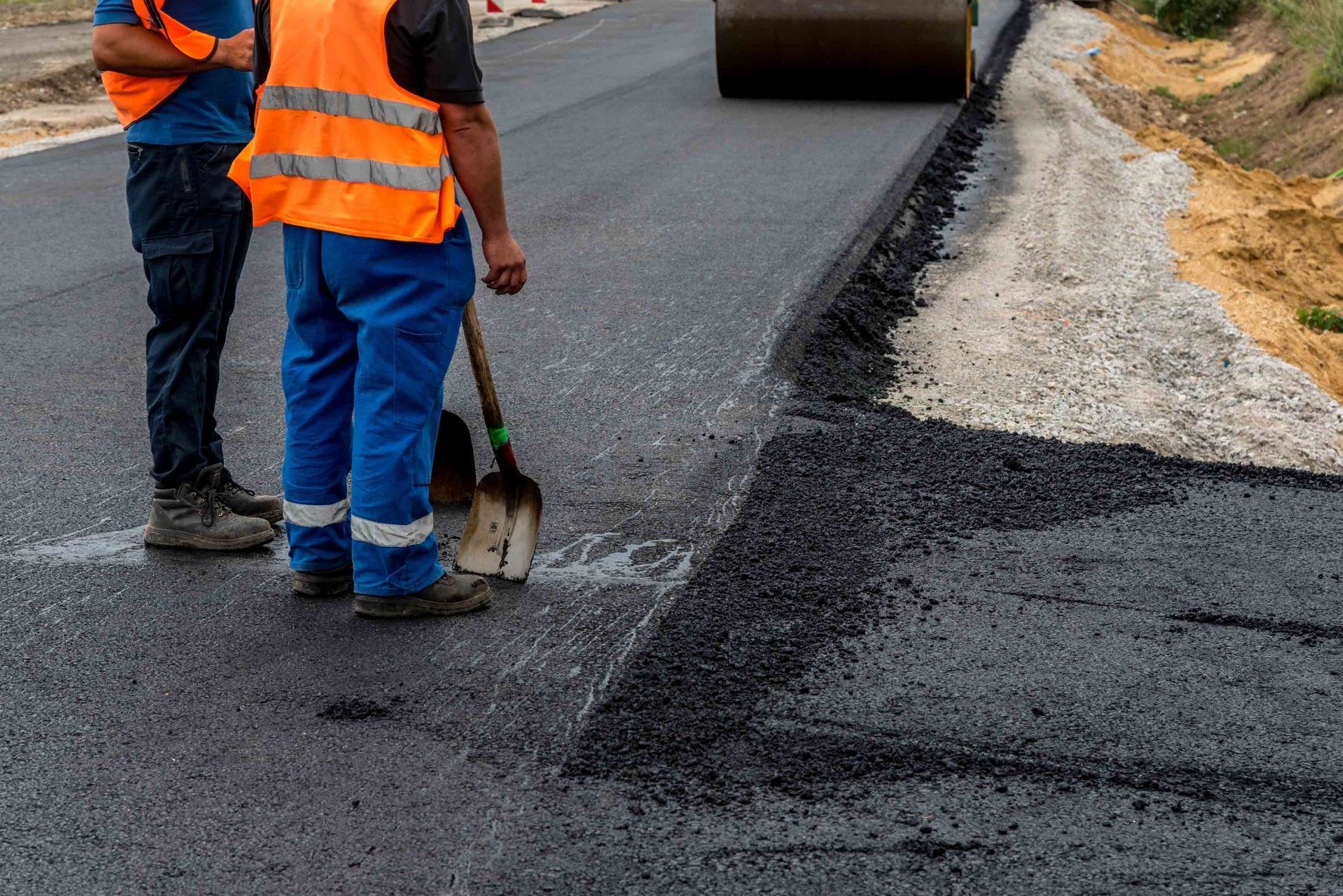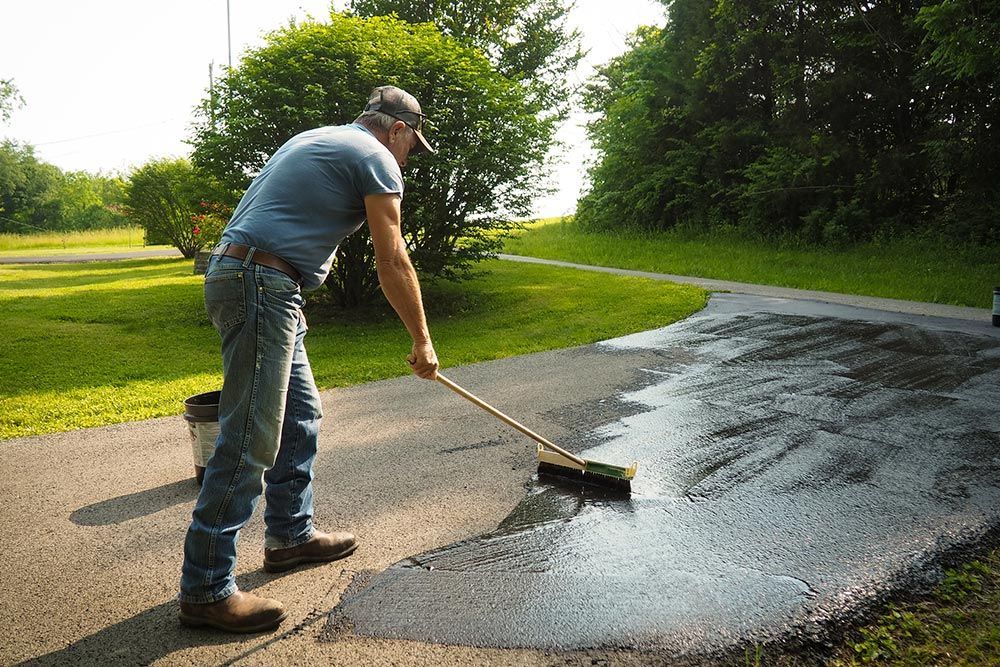SealAsphalt Cracks the Right Way | SealtechAsphalt
- By Admin
- •
- 11 Jul, 2018
- •
Fortunately, cracks can be easy to deal with, provided you have a professional attend to them quickly. This article will cover information about how an asphalt contractor can eliminate problems caused by cracks. Specifically, it will outline three of the most important factors when it comes to asphalt crack sealing.
1. Use the Appropriate Crack Sealant
Asphalt crack repair involves filling up the crack with a flexible, stable, and long lasting sealant. Many people out side the asphalt industry assume that only one type of crack seal ant exists. Actually, a large variety of sealants can be found on the market today. Using a less appropriate sealant increases the risk of the crack opening back up as time goes on.
An experienced asphalt contractor understands the various factors that must be considered when selected the appropriate sealant for a job. These factors include the work ability of the sealant, its cure time, its level of adhesiveness,and its general resistance to softening when exposed to heat and light.
Likewise, the elasticity of the sealant plays a large factor. Cracks that may continue to grow or separate require that a more elastic sealant be used. A more rigid sealant, on the other hand, will easily pull away from the walls - or develop cracks of its own - as the asphalt continue to shift.
Finally, the sealant's ability to resist wear and abrasion must betaken into consideration. If the crack being sealed happens to lie in the middle o fa high- traffic roadway, a tougher, more resistant sealant must be selected. By contrast, wear resistance won't be as huge of a factor for cracks that lie in less traveled areas, such as the edge of a residential driveway.
2. Prepare the Site Carefully
No matter how wells elected a sealant, it won't last long unless the crack has been adequately prepared. Any loose material must be swept clear. Likewise,any plants growing in or around the crack must be thoroughly removed. Proper result scan only be achieved if the crack in question is clean and dry.
Professional asphalt contractors often prepare asphalt cracks using a tool alternately known as either a heat lance or a hot air lance. As the latter name suggests, this tool uses a stream of exceedingly hot air to scour out the inside of the crack.
The temperature of a hot air lance may be as great as 3,000 degrees Fahrenheit. The combination of high temperature and pressurized air allows a heat lance to achieve three key goals.
First, the heat lance removes any water from the inside of the crack - literally boiling it out of existence. Second, it burns out any organic matter. Third, it heats up the surrounding asphalt. By decreasing the temperature difference between the asphalt and the sealant, a stronger and more lasting repair can be ensured.
3. Preheat the Sealant
Many asphalt sealants must be applied at certain temperatures. In other words, like asphalt itself, the sealant must be brought to an appropriate temperature before application. This heating takes place inside of the sealant melter. Most sealants must be heated to between 350 and 410 degrees Fahrenheit.
An experienced asphalt contractor understands the importance of preheating asphalt sealant. They will ensure that application temperatures are kept within the manufacturer's specified range. This increases the chances of a strong bond forming between the sealant and the walls of the crack.
Dealing with asphalt cracks quickly and correctly extends the life of an asphalt surface. Fora better understanding about what it takes to get this job done the right way,contact the paving pros at Sealtech Asphalt.

Paving contractors carry out the process of compaction using heavy-duty machines appropriately known as compactors. But not all compactors are the same. These machines may differ in terms of the particular types of compaction forces they utilize.
This article will help to further your understanding of paving installation by discussing the four types of compaction forces used to ensure stable, long-lasting paving results

4 Reasons Your Asphalt Parking Lot Needs Patching
Asphalt parking lots may look relatively invulnerable, but like anything else left out in the weather, they can degrade over time. Whether you've fallen behind on maintenance or whether the asphalt is cracking and crumbling because of faulty construction or installation, seeing potholes and alligator cracks appear can be quite a disconcerting experience.
If this does happen to you, you may want to find out what the underlying problem is in order to make informed decisions about repairs. Here are four reasons these types of damages can occur.
1. Weathering
The weather doesn't have any immediately apparent effect on your parking lot, but over time, the damage builds up. Different types of weather, such as UV rays, fluctuating temperatures, and freeze-thaw cycles, can affect the asphalt in various ways:
- UV rays degrade the quality of the tarry substance holding the pavement together, making the pavement less supple and more crumbly.
- Fluctuating temperatures cause the asphalt to expand and contract, causing cracks, especially after the pavement has sustained some UV damage and is more brittle.
- Freeze-thaw cycles attack your asphalt by causing water that's settled in little crannies in your pavement to expand, forcing the cranny's edges apart to cause cracks.
As you can see, the outside world is no friend to your parking lot. Even if this is the only factor causing cracks, you still need to keep up with maintenance if you want a long-lived asphalt surface and hope to avoid potholes.
2. High Traffic
Heavy traffic levels (especially extremely heavy vehicles) can not only cause cracks but also other types of damage such as buckling — and they can eventually lead to potholes as well.
The more customers you get, the more stress your pavement takes, which is why experts recommend that you occasionally have your parking lot re-painted. By repainting your parking lot and designating new parking areas, you allow different areas of the parking lot to take the heaviest traffic, extending the life of your parking lot.
3. Incorrect Installation
You may have inherited your parking lot from the previous facility owner, and if so, you may not have been around when the parking lot was installed. But you can probably imagine how many problems can occur if the contractor did a poor installation job. Here are just a few of them:
- Alligator cracking
- Sunken areas/depressions
- Buckling
- Slippage cracks
- Ruts
Some of these, such as alligator cracking, can be caused by other problems. However, if your pavement is only one or two years old and already has alligator cracks, that's not normal.
4. Oil Leaks
Depending on the type of business you have, your customers may leave their cars in your parking lot for hours at a time — and some of the cars may have slow oil leaks. Oil leaks are a problem for you because the oil breaks down the tarry glue holding your parking lot together, leaving the spot unprotected. If they are not cleaned up, these oil spots can actually lead to potholes.
The initial damage is less extreme. First, the oil eats away at the surface of the asphalt and allows water through. Next, the water works its way all the way down through the layers and causes water damage to the parking lot's foundational levels. Then the entire area of asphalt deteriorates, becomes shot through with cracks, and eventually breaks up until a crater forms.
If you don't patch the area before the pothole finishes forming, the damage could already be spreading to the surrounding asphalt and weakening it as well.
Knowing that your asphalt needs patching is the first step towards getting it patched. The next step is contacting a reputable and experienced company in your area for a quote, so give Sealtech Asphalt Inc. a call today to discuss how we can help you.







